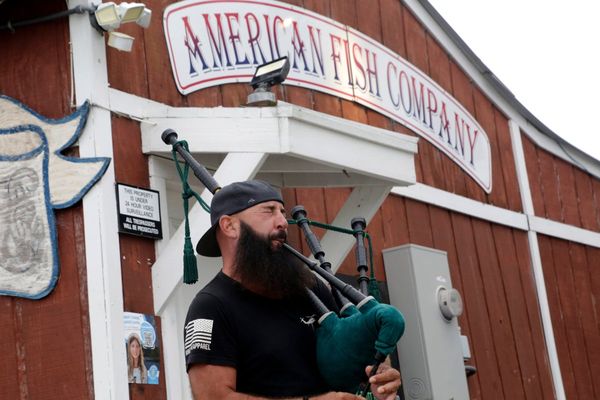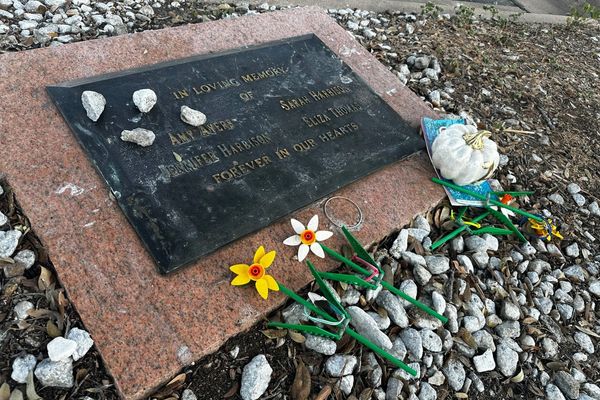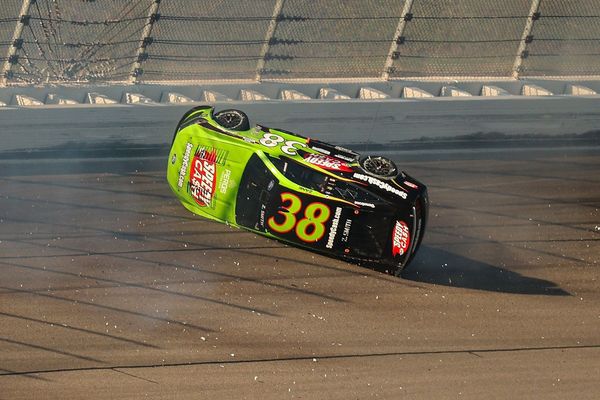It was a throwaway line in an early 2009 speech from the newly inaugurated President Barack Obama. Under pressure to convey populist anger about Wall Street bailouts, he offered a glib admonition towards the banking sector: "You can't go take a trip to Las Vegas or go down to the Super Bowl on the taxpayer's dime."
For America's biggest gaming empire, Harrah's Entertainment, the rebuke could not have come at a worse time. A year earlier, Harrah's had been taken over in a bold $31bn leveraged buyout by Apollo Global Management and TPG, two private equity pioneers. They paid a 31 per cent premium for the later renamed Caesars Entertainment - honouring its best-known property, Las Vegas' Caesars Palace. The high price reflected the belief that casinos had stood resilient in earlier recessions.
The Caesars bankruptcy has been one of the nastiest corporate brawls in recent memory. Caesars debtholders - led by Elliott Management, Appaloosa Management and Oaktree Capital - accused the private equity firms of "unimaginably brazen looting" in the years after the 2008 buyout.
The creditors, described by one member of the buyout group as the "smartest debt investors in the world", alleged that the private equity owners had methodically siphoned Caesars' crown jewel properties to other entities they owned to salvage what ever value remained for themselves. Apollo and TPG insisted that they had battled to keep Caesars alive so it could fight another day.
The allegations of impropriety gained enough legal traction that Apollo's co-founder Marc Rowan and TPG co-founder David Bonderman were ordered by a court last year to produce personal financial documents showing their ability to meet billions of dollars of potential personal judgments against them. Jim Millstein, the company's banker, said in a 2015 court hearing that the fight could degenerate into "one of the great messes of our time".
But while the Masters of the Universe were busy swapping accusations, Las Vegas quietly recovered. With a former casino owner now occupying the White House, finance and tech gatherings regularly roll into town, attracting thousands who want to eat, party, gamble, take in a show and forget the real world.
A Sin City renaissance had injected so much life into the core Caesars business - operating profit is up by half in three years - that the only reasonable choice for the warring factions was to settle the costly legal fight.
A slimmer, revitalised Caesars emerges from bankruptcy in the next week valued at perhaps $25bn, not far from its sale price in 2008.
In the end, the debtholders held all the aces, although the private equity firms will be allowed to keep a piece of the action. But, for all the wrangling and lawsuits, the fortuitous outcome is a result of the less flashy work of repairing an underlying business.
"The casino business has this mathematical beauty to it. But nobody was using it," explained Gary Loveman, who went from a Harvard Business School professor who consulted for Caesars in the 1990s to being the company's chief executive.
Mr Loveman's insights from collecting the gambling, dining and lodging habits of Caesars customers led to the creation of a loyalty programme called Total Rewards. Gamblers could rack up points by betting at Caesars' small-time casinos in Illinois or Mississippi, then use those points at glitzier resorts in Las Vegas or Atlantic City.
His analytics initiative was a smash. By 2007, Caesars, which had started out 70 years earlier as a single bingo hall in Reno, Nevada, had accumulated more than 50 properties in the US. Annual group revenue exceeded $12bn.
In 2006, the chain attracted the interest of Apollo and TPG, which were involved in the push by private equity firms to do once inconceivable leveraged buyouts of large, listed companies. At $31bn, Caesars ranks as the seventh-biggest LBO in American history.
"We thought we had the ability to use more leverage than public companies were comfortable with so the overall cost of capital was lower. In retrospect, this [arbitrage] should not be what PE is all about," says an executive at one prominent financial investor, explaining the 2004-08 LBO binge.
Led by Apollo and TPG, the equity investors would contribute $6bn of equity towards Caesars. Smaller members of the group included the industrialist James Packer, Robert Kraft, the owner of the New England Patriots, and even Steven Mnuchin, now the US Treasury secretary.
Apollo and TPG have consistently denied any charges of wrongdoing, maintaining they acted consistent with their duties. The creditor groups declined to comment for this story.
The deal's closing in 2008 was just in time for the onset of the financial crisis. The collapse of tourism and conventions contributed to annual revenue falling at Caesars by a fifth between 2007 and 2009. The company faced nearly $2bn in annual interest payments, which alone exceeded its cash generation. With Apollo effectively calling the shots, Caesars tried different tactics which led to the subsequent legal free-for-all.
"Apollo founders are famously difficult people," says one long-time executive who had worked closely with Apollo for years, referring to Leon Black, Joshua Harris, Marc Rowan and others who met at Michael Milken's Drexel Burnham Lambert investment bank in the 1980s. "Their duty is to the equity and they will do anything legally they can do to defend that equity."
Between 2011 and 2014, Caesars - at the behest of Apollo - began selling off portions of its intellectual property and Las Vegas properties including Planet Hollywood, Bally's, Linq/Octavius, the Quad and the Cromwell. The buyers of all those assets: none other than entities controlled by Apollo and TPG.
For Caesars' private equity owners, the billions in proceeds kept Caesars afloat. While Mr Rowan was the most senior Apollo executive involved at Caesars, the day-to-day management was left to a young Apollo investor, David Sambur, who had joined the firm in 2004 in his mid-20s. While considered analytically brilliant, his bare-knuckle negotiating tactics wore thin on others.
"Sambur is one of the most difficult human beings I have ever dealt with," says one veteran restructuring specialist about the Apollo executive's negotiating tactics over Caesars. "He was like the cat with the cheese. He would make an offer one day and retract it the next." One creditor said that it was not uncommon for Mr Sambur to storm out of negotiating sessions, leaving the others in the room confused about the status of the talks. Apollo declined to comment.
Creditors of the primary Caesars operating company saw the parade of asset sales not as life-saving manoeuvres but as craven asset stripping: a "Good Caesars" had been created that seized the best properties on behalf of Apollo and TPG, leaving the loan and bondholders the weakest assets that could not satisfy debts.
Lawsuits began in 2014 over the asset sales and accompanying terminations of bond guarantees made by the Caesars parent company. In early 2015, Caesars filed for Chapter 11 protection in Illinois, where it had casinos.
That meant that Caesars was fighting a creditor war on two fronts: on the one hand, it was contesting the spiralling litigation in multiple venues and, on the other, working to strike a consensual restructuring to take advantage of the recovering Las Vegas. By 2016, Caesars had rallied support with debtholders that represented $14bn of the operating company's $18bn in debt.
The key remaining adversaries: David Tepper's Appaloosa and Howard Marks' Oaktree, formidable hedge funds that had accumulated stakes in Caesars' junior "second-lien bonds" and had clashed before with Apollo at other companies.
Caesars' initial offer to this group in 2015 was a recovery of 9 cents on the dollar, each cent representing roughly $50m. In American law, the concept of "cramdown" allows a bankruptcy judge to overrule holdout creditors blocking an otherwise reasonable deal.
But Apollo's plan to isolate and cram down the junior bondholder group flopped. Richard Davis, a former Watergate counsel and federal prosecutor, had been appointed as an independent examiner to investigate the claims of fraudulent asset sales at Caesars after its LBO. Mr Davis concluded in 2016 that there was significant evidence of as much as $5bn worth of fraudulent transfers executed by Caesars' management and board. Liability for these transfers flowed up as far as board members including Mr Loveman, Mr Bonderman and Mr Rowan.
While the fraud lawsuits were automatically paused because of the bankruptcy proceedings, the separate lawsuits against the parent Caesars company over bond guarantee terminations continued with more than $10bn in possible liability. Apollo had been successful in getting Benjamin Goldgar, the Illinois bankruptcy judge, to pause those trials in order to let the parties strike a restructuring deal.
By late summer, Judge Goldgar lost his patience with the private equity firms and allowed the bond guarantee trials to proceed. He noted that the offer on the table from Apollo and TPG allowed the two to contribute virtually no money of their own to the new Caesars while getting complete releases in liability from fraud and other wrongdoing claims.
"Particularly disturbing is that [neither TPG nor Apollo] is making any financial contribution to the reorganisation although the proposed plan would release all claims against them," he said.
In September, he ordered Mr Loveman, Mr Bonderman and Mr Rowan to begin providing personal financial statements. The ownership group capitulated last autumn. The parent Caesars entity controlled by the equity sponsor group agreed to put $6bn into the restructured company, including handing back most of their equity ownership in Caesars to the overall creditor group.
"Maybe they could have gotten away with two or three of these asset sales," says one creditor. "But if you rob a bank nine times, on the tenth time the cops will probably show up."
The initial 9 cents on the dollar offer to the junior bond group was increased to 66 cents, comprised of cash and a stake in the new Caesars. That debt has now traded up to above 90 cents. The Caesars stock that trades publicly has almost doubled this year. Both securities demonstrate the enthusiasm for the sleeker Caesars in a revitalised Las Vegas. The sliver of equity, just under 20 per cent, which Apollo and TPG were allowed to keep is worth nearly $2bn.
TPG's Caesars headache has been replaced by another at Uber. Mr Bonderman was forced to resign from the board after an insensitive remark to fellow director, Arianna Huffington.
Times are better for Apollo, which this year raised a $25bn buyout fund, the largest in history. Its shares are the best performing among listed US private equity firms in the past two years. Several rivals are increasingly willing to replicate its hardball tactics in their own creditor negotiations.
By 2016, most of the key indicators of Las Vegas tourism, such as visitors and rooms occupied, were ahead of their pre-crisis peaks. But now, gambling accounts for less than half of casino revenue with tourists and convention goers clamouring for entertainment and high-end dining. Britney Spears first and now Jennifer Lopez have had successful residencies at Caesars properties; chefs including Gordon Ramsay, Nobu and Mr Chow have franchises.
Since the January 2015 bankruptcy filing, the company has not made any interest payments and has ploughed that cash into refreshing its properties, with virtually all of its 25,000 rooms set to be renovated by 2020.
Perhaps the biggest sign of the city's revival came from the Obama administration itself. In May, the annual hedge fund conference put on in the city by Anthony Scaramucci, the Wall Street provocateur and shortlived White House official , was full of investors giddy about the presidency of Donald Trump, the erstwhile casino tycoon. Giving a keynote speech was none other than Joe Biden, Mr Obama's vice-president.
Copyright The Financial Times Limited 2017







